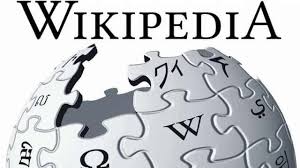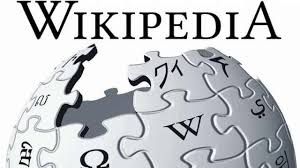
In an initiative that the founder of online encyclopaedia Wikipedia hopes will counter the spread of fake news, plans for a crowd-funded news website offering stories by journalists and volunteers working together was recently announced by him.
While the accuracy of its articles would be easily verifiable as source material would also be published, this planned new platform, Wikitribune, would be free to read and carry no advertising, instead relying on supporters to fund it, Jimmy Wales said.
"The news is broken, but we've figured out how to fix it," he said in a promotional video posted on the website's homepage, which does not yet carry any news stories. The page where the video was posted indicates the platform will go live in 29 days.
Hiring the first 10 professional journalists would be the goal of the plan initially so that the funding process can be sufficient for that purpose. While the amount and frequency of gifts can easily be modified, initially, the website is set up to encourage supporters to give $10 a month.
A major topic of angst and debate in many developed countries during last year's U.S. presidential election was the issue of fake news and their online proliferation, some of it was generated for profit and some for meeting political ends.
While questioning whether it would have the scale and reach to stem the flow of fake news, Wikitribune was welcomed as an attempt to tackle a lack of public trust in mainstream media, by Charlie Beckett, media professor at the London School of Economics.
"The kind of people who will pay attention to Wikitribune and contribute to it are people who are already pretty media-literate," he told Reuters.
News sites were reliant on advertising money, which incentivized them to produce "clickbait" rather than quality output because Internet users expected news to be free, Wales argued in his video.
designed to show users what they wanted to see, confirming their biases were the social media networks, where an ever-increasing number of people get their news, he also said.
While users would be able to flag up issues and submit fixes for review, articles would be authored, fact-checked and verified by journalists and volunteers working together, the Wikitribune website said.
While saying that this was already being done in the media, journalists could benefit from tapping into expertise or information held by readers, Beckett said. It was not a miracle remedy against inaccuracy, he also said.
"There's nothing magical about being a citizen. As a citizen you have your own bias and prejudice and experience as well," he said.
(Source:www.reuters.com)
While the accuracy of its articles would be easily verifiable as source material would also be published, this planned new platform, Wikitribune, would be free to read and carry no advertising, instead relying on supporters to fund it, Jimmy Wales said.
"The news is broken, but we've figured out how to fix it," he said in a promotional video posted on the website's homepage, which does not yet carry any news stories. The page where the video was posted indicates the platform will go live in 29 days.
Hiring the first 10 professional journalists would be the goal of the plan initially so that the funding process can be sufficient for that purpose. While the amount and frequency of gifts can easily be modified, initially, the website is set up to encourage supporters to give $10 a month.
A major topic of angst and debate in many developed countries during last year's U.S. presidential election was the issue of fake news and their online proliferation, some of it was generated for profit and some for meeting political ends.
While questioning whether it would have the scale and reach to stem the flow of fake news, Wikitribune was welcomed as an attempt to tackle a lack of public trust in mainstream media, by Charlie Beckett, media professor at the London School of Economics.
"The kind of people who will pay attention to Wikitribune and contribute to it are people who are already pretty media-literate," he told Reuters.
News sites were reliant on advertising money, which incentivized them to produce "clickbait" rather than quality output because Internet users expected news to be free, Wales argued in his video.
designed to show users what they wanted to see, confirming their biases were the social media networks, where an ever-increasing number of people get their news, he also said.
While users would be able to flag up issues and submit fixes for review, articles would be authored, fact-checked and verified by journalists and volunteers working together, the Wikitribune website said.
While saying that this was already being done in the media, journalists could benefit from tapping into expertise or information held by readers, Beckett said. It was not a miracle remedy against inaccuracy, he also said.
"There's nothing magical about being a citizen. As a citizen you have your own bias and prejudice and experience as well," he said.
(Source:www.reuters.com)














